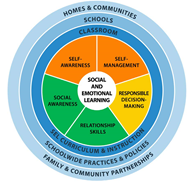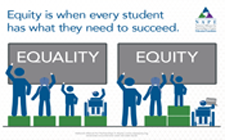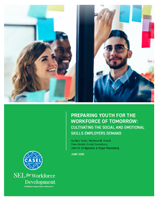You are here
Individual Development
Overview
When students focus on Individual Development they understand how their unique aptitudes, skills, talents, self-identity, and values influence the decision-making process for life-long learning.
"It is appropriate - and should be a goal - for students to design their lives based on who they are. Because when we chase our own goals we are more likely to enjoy the journey."
- Traci Sanchez, School Counselor, CTE Specialist, ICAP Facilitator, CareerConnect, DPS, [email protected]
Empower students to take ownership of the ICAP process, so they can:
- Discover who they are, what makes them happy, and how they most feel fulfilled
- Speak to their strengths, aptitudes, interests, and goals
- Learn to understand and articulate their passions, hopes, and dreams
- Understand how their unique aptitudes, skills, talents, self-identity, and values influence the decision-making process for life-long learning
- Practice, reflect on, and refine their skills through meaningful classes and experiences
- Build social capital and practice essential and employability skills
- Enhance the quality of life and contribute to the realization of dreams and aspirations
- Change and evolve over time
Guiding Questions
- How do you help students develop their self-awareness in your building?
- How can you capture this development?
- How do you develop students’ sense of direction?
- What role does relationship-building play in your building?
- How have you built in cultural responsiveness and equity?
- How do you get to know your students’ stories?
- What does this experience/progression look like throughout the grades?
- In what ways do you encourage students to recognize and appreciate that personal experiences shape their futures?
- What do I like? What am I good at?
- What do I value? How is that different from my friends?
- In what ways am I confident, self-reliant. How do I interact with my peers? How do I know I am a critical thinker, an informed risk-taker, a self-advocate, resilient?
- Where do I see myself in 2 years, 5 years, 10 years?
- What are my options? How can I get exposure/experience?
- What are my areas of growth for the careers I am interested in?
- In what ways have personal experiences impacted or influenced my journey?
Emotional Learning (SEL) and Individual Development
SEL is the process through which children and adults understand and manage emotions, set and achieve positive goals, feel and show empathy for others, establish and maintain positive relationships, and make responsible decisions.
The Collaborative for Academic, Social, and Emotional Learning (CASEL) defines five core social and emotional competencies: self-awareness, self-management, social awareness, relationship skills, and responsible decision-making. Each competency comprises a set of skills, attitudes, and knowledge that, when developed and applied in safe and culturally supportive environments, allows individuals to maximize success in that environment.

Five competencies of SEL, CASEL.org
SEL and Academics
Social Emotional Learning - when integrated alongside academic learning - helps deepen and expedite learning, supports students in developing the skills to succeed in school and life, and enables educators to create safe and inclusive learning environments." Listen to Sheldon Berman, Lead Superintendent for Social-Emotional Learning at the Schools Superintendents Association, and Linda Darling-Hammond, President and CEO of the Learning Policy Institute, explore this issue in their Blog: Communicating the "Learning" in Social Emotional Learning.
SEL is a lever for equity and excellence
The ‘I’ in ICAP allows us to focus on EACH student and learner as an individual. Equity Minded ICAP:
- facilitates the practice that EACH student is seen and heard, and EACH student explores, manages, prepares and plans
- removes zip codes, district lines, grade levels, and personal identities
- doesn’t discriminate
- is inclusive of each student and learner, each practitioner and implementer, and each champion

Employers are looking for SEL competencies and skills
In the brief listed below, CASEL begins to define the relationship between social and emotional competencies and the skills that today’s employers seek in the workplace for state and district policymakers, educators (e.g., classroom and CTE teachers), and the business community.

"Preparing Youth for the Workforce of Tomorrow: Cultivating the Social and Emotional Skills that Employers Demand", CASEL
Consider using these Tools:
Look for platforms like YouScience or My Colorado Journey in PWR Practices



Connect With Us




